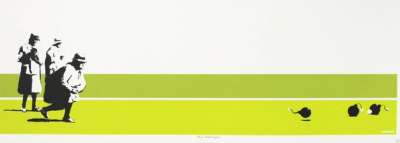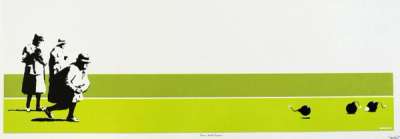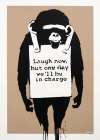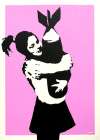Bomb
Middle England
Banksy’s Bomb Middle England shocks with a strong anti-war sentiment, highlighting how complacent we are towards violence and war. Banksy's 2003 POW print critiques UK's involvement in foreign conflicts through the lens of a leisurely, bourgeois game of boules.
Banksy Bomb Middle England For sale
Bomb Middle England Value (5 Years)
The Bomb Middle England series by Banksy features both signed and unsigned editions, which diverge significantly in value. Signed examples consistently command premiums, with hammer prices reaching up to £36000. Across the series, 59 total auction sales have been recorded, with an average annual growth rate of 10.29%. For collectors, edition type plays a pivotal role in value potential within this series.
Bomb Middle England Market value
Auction Results
| Artwork | Auction Date | Auction House | Return to Seller | Hammer Price | Buyer Paid |
|---|---|---|---|---|---|
Bomb Middle England Banksy Unsigned Print | 2 Dec 2025 | Finarte | £5,950 | £7,000 | £8,500 |
Bomb Middle England Banksy Signed Print | 19 Mar 2025 | Tate Ward Auctions | £15,300 | £18,000 | £24,000 |
Sell Your Art
with Us
with Us
Join Our Network of Collectors. Buy, Sell and Track Demand
Meaning & Analysis
One of Banksy's earlier prints, Bomb Middle England depicts an explosive game of boules - typical of the Banksy’s irreverent approach to anti-war art. Pictures on Walls, the artist’s original UK print house, released it in 2003 as an edition of 450 unsigned prints. There are also a rare 50 signed prints on woven paper.
The work shows three elderly ladies, innocently clad in coats and hats as they enjoy playing boules. Banksy renders the three characters and their balls in black and white through his iconic stencil style, and here he replaces the boule balls with metal cannonballs, all with lit fuses. The women stand on the far left side whilst their balls roll towards the right, ready to blow.
The title refers to one of Banksy’s most popular targets – the indifferent bourgeoisie. However, as always, this Bansky print can be interpreted in a variety of ways; the work could seem to convey a belief that the English elite is immune to violence and the brutality of war as they throw bombs without a care. A different reading considers the work as a parody of war as a game to be played by those in elite social circles who have the power to expend the lives of others and never suffer the consequences. Other interpretations view the three elderly ladies, wearing hats reminiscent of military helmets, as soldiers, attacking Middle England with the specific values and attitudes put upon them by society.









